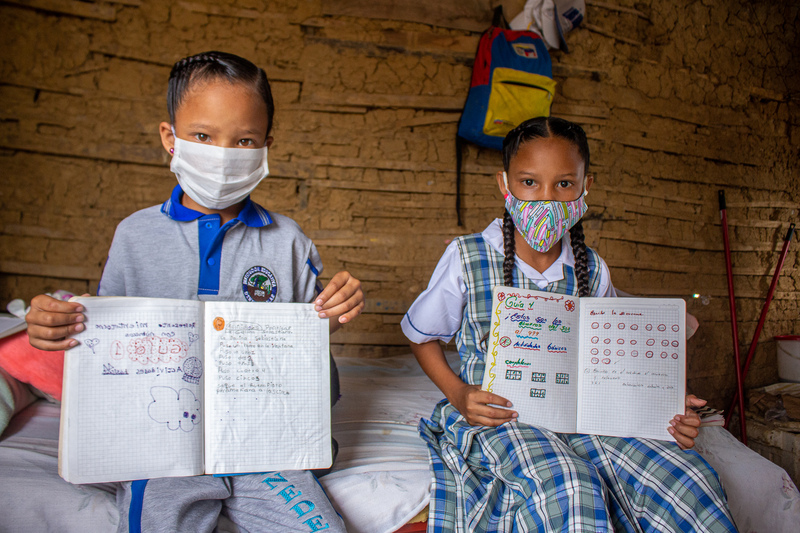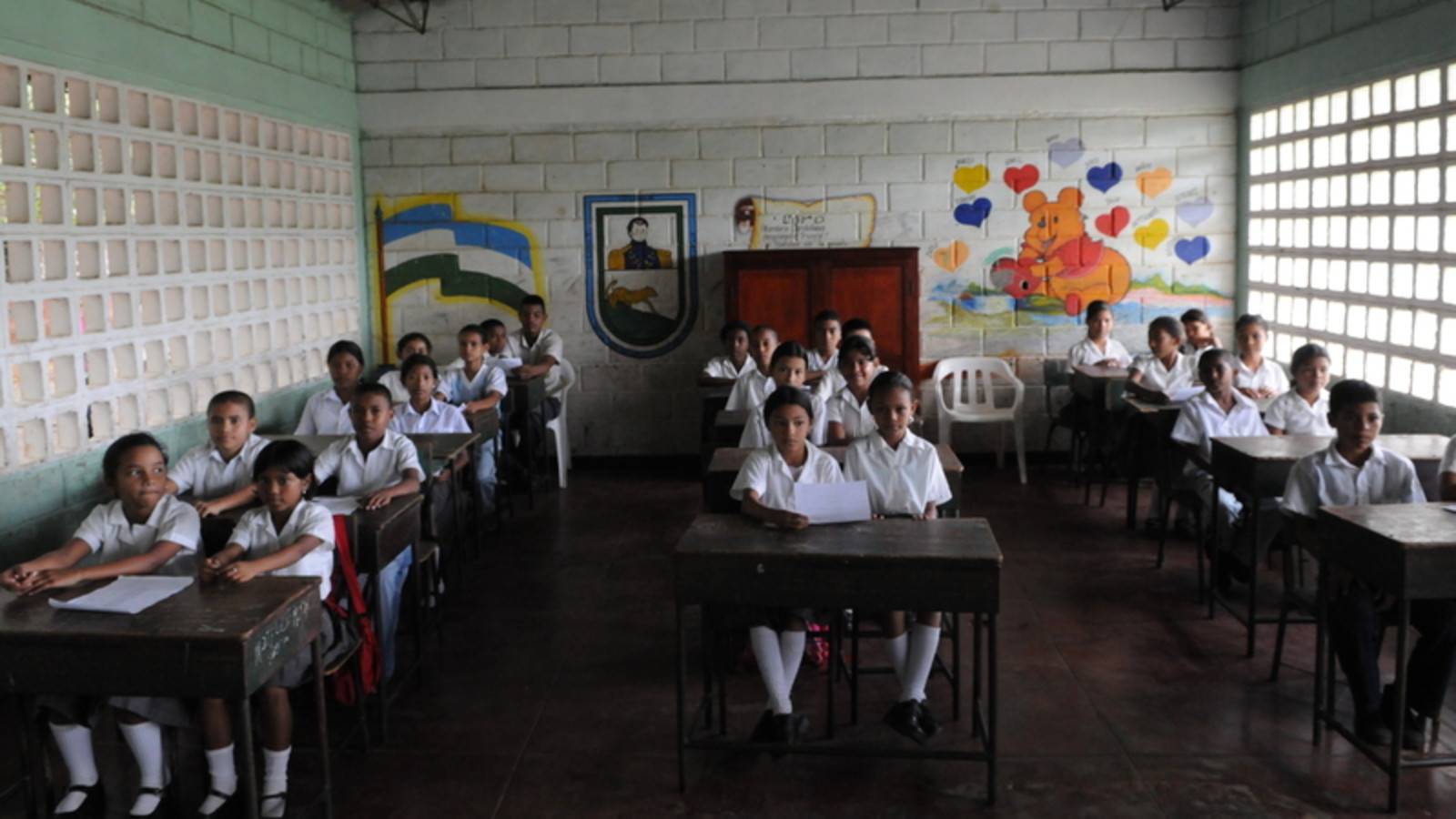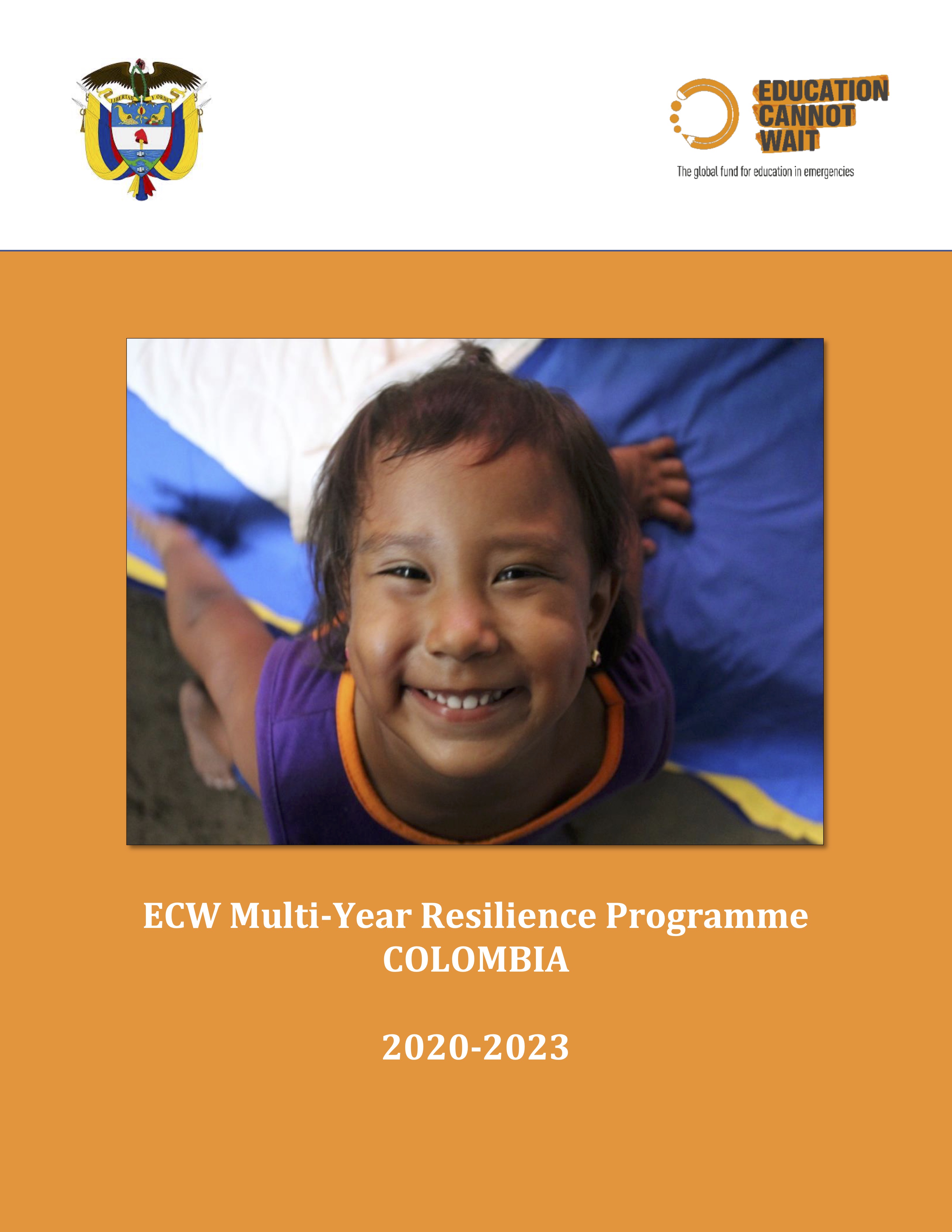ECW in Colombia
Millions of Venezuelan refugees and migrants have fled the crisis in their home country seeking refuge in neighbouring countries. In this mass exodus, vulnerable girls and boys are at high risk of exploitation and abuse. Colombia hosts the largest number of refugees and migrants from Venezuela, ranking as the second largest refugee host country in the world. To be protected, children are in dire need of assistance and reintegration into the formal school system. Since 2019, Education Cannot Wait (ECW) has supported partners in Colombia to help Venezuelan refugee and migrant students transition back to formal education and strengthen foundational skills. This is part of the Fund’s response to the impacts of the Venezuelan regional crisis, also in Brazil, Ecuador, Peru and Venezuela.

Investments
Financial Information
National Counterparts
Ministry of Education
Results
Additional Results
- Percentage of children and adolescents (grades 2 or 3) who achieve at least a minimum proficiency level in social and emotional learning: 92%
- Percentage of children and adolescents (grades 2 or 3) who achieve at least a minimum proficiency level in math: 70%
- Number of teachers/administrators trained in mental health and psychosocial and psychological support topics: 1,399
- Number of children and adolescents who receive ECW-supported remedial classes: 1,465
COVID-19 Results
Programme Info

Many Venezuelan refugees and migrants have relocated to Columbia and frequently travel back and forth across the border to access basic services such as education. Since 2015, the number of students, refugees and migrants requiring support and needing reintegration into the formal school system has substantially increased. Hundreds of thousands of young Venezuelan refugees and migrants are enrolled in Colombia’s formal education system, straining its capacity.
Vulnerable refugee and migrant children and adolescents are at increased risk of sexual and gender-based violence; early marriage and pregnancy; recruitment into criminal gangs and other armed groups; and other forms of abuse and exploitation. The ECW-funded programme in Colombia reaches tens of thousands of refugees and migrants with early childhood, primary, and secondary education, prioritising departments across the north and north-east of the country where the vast majority of them live. In response to the COVID-19 pandemic, alternative education approaches such as remote learning, remedial education and psychosocial support have been prioritised to ensure the continuity of education.
Building on the impact of the First Emergency Response (FER) initially rolled out in 2019, ECW has launched a Multi-Year Resilience Programme (MYRP). As part of the Fund’s regional response, MYRPs have also been launched in Ecuador and Peru. The Programmes focus on ensuring access to inclusive and equitable quality education for hundreds of thousands of Venezuelan refugee, migrant and host-community children and adolescents.
Programme Components
- Improving protection and safety. Grantees provide psychosocial support services to students to address the trauma of the Venezuelan crisis. They also implement safer learning environments through classroom, latrine and water station rehabilitation.
- Promoting increased learning outcomes. The MYRP utilises a learning outcome measurement tool to assess the impact of different variables on literacy, numeracy and socio-emotional learning outcomes based on students’ level of vulnerability.
- Providing learning materials. ECW supports the distribution of materials to schools and students for improved learning outcomes.
- Reintegrating students. FER grantees successfully reached children through accelerated learning with a significant majority completing the school learning cycle and successfully transitioning to formal education. Additionally, funding supports new temporary learning spaces and works to strengthen students’ foundational skill.
For more information on ECW's work in Colombia, please contact Country Lead Dianah Nelsen (dnelson@unicef.org) and Programme Manager Vina Barahman (vbarahman@unicef.org).





